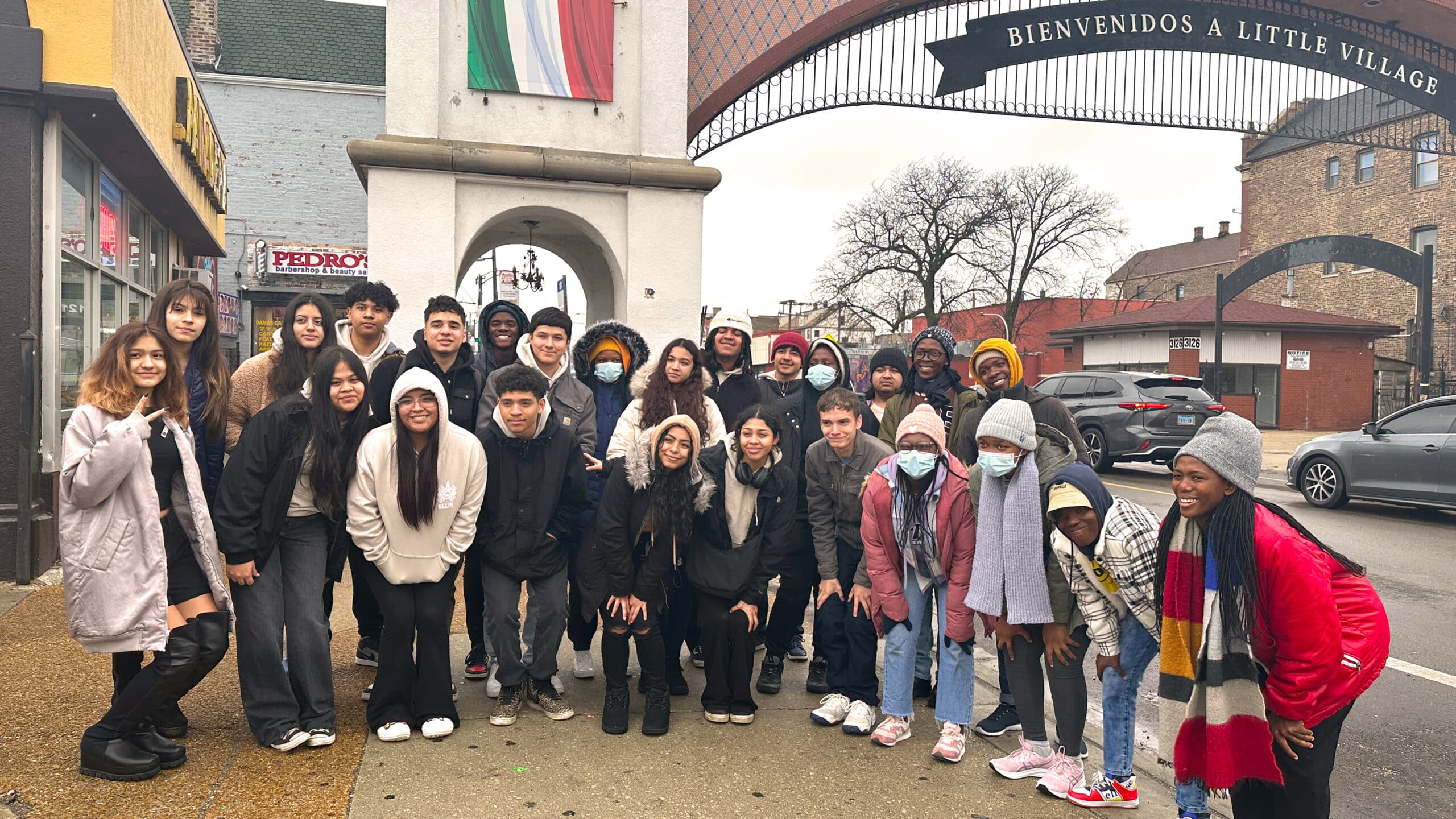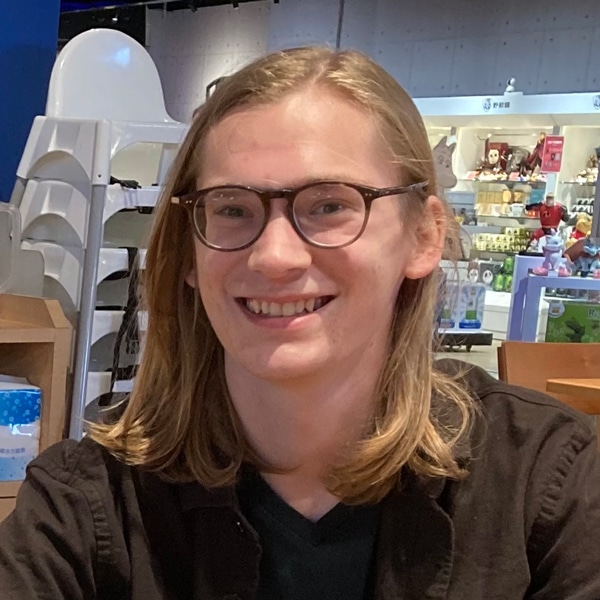Teaching the Importance of Pluralism and Social Inclusion through Robotics
By: Zeki Salah, Communications Associate
A global grassroots robotics initiative, One Team Two Continents, brought thirteen South African students to Chicago in March to participate in a FIRST robotics competition. The project was a joint collaboration between 2019 Chicago Peace Fellow Jackie Moore and 2018 Global Fellow Dieudonne Anumbosi Allo. Funding from the Chicago Peace Fellows Mutual Aid Collaborative and the U.S. Embassy in South Africa enabled the team to provide cultural programming and transportation for the South African students as well as their Chicago robotics team mates.
The Mutual Aid Collaborative consists of 74 Black and Brown leaders and committed allies who live and work in the communities they serve on the South and West sides. They have raised over $100,000 to support several active projects. As an expression of solidarity and support, The Funders Pledge, a project of the Mutual Aid Collaborative, decided to share their funding with the One Team Two Continents team to help cover the local costs of hosting the students.
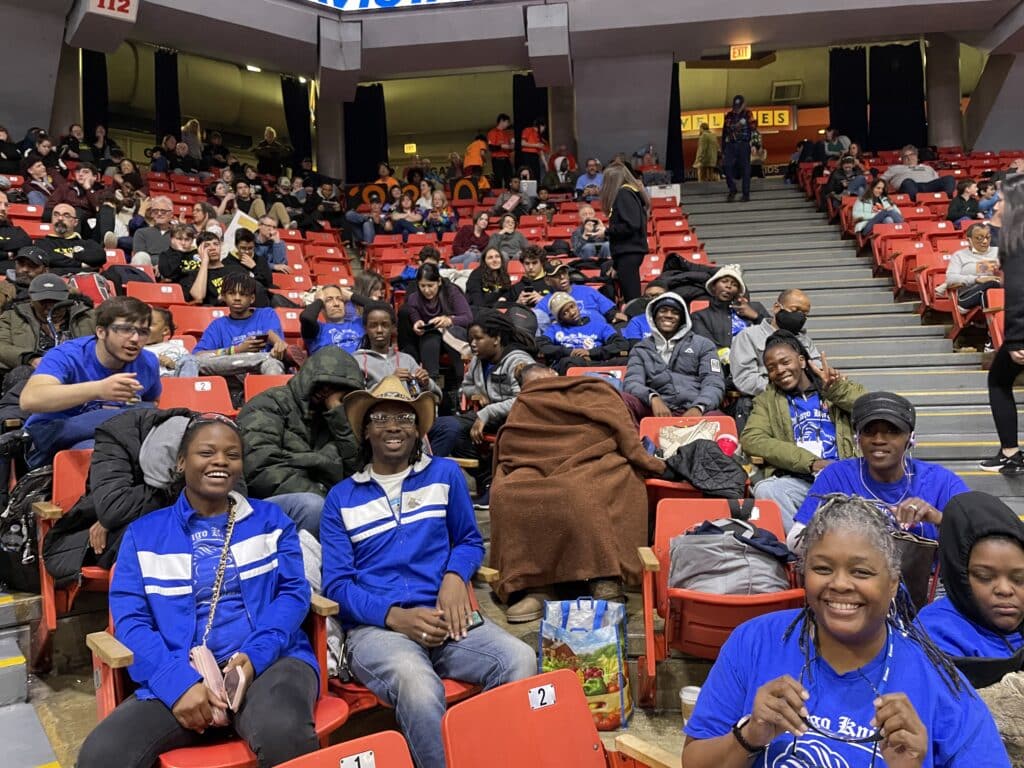
Both Jackie and Dieudonne have experience working with youth in STEM education, making them strong collaborative partners. Dieudonne is the CEO of the Global Leading Light Initiative, a non-profit in South Africa which supports young people in historically disadvantaged communities to acquire future proof skills, with the aim of reducing poverty and inequalities. Jackie is the founder and Executive Director of Agape Werks, Inc, a community based non-profit in Chicago with a mission to promote in young people an appreciation of math, science, technology, and engineering as strategic tools for success regardless of life circumstances.
The partnership between the students in Chicago and Port Alfred dates back to 2019, when Allo and Moore developed the “One Team Two Continents” concept after meeting through the Goldin Global Fellows program to explore cross-continental collaboration opportunities. This initiative envisions a youth-led, distributed team working together on robotics projects in an environment that fosters inclusion and cultural pluralism. The students from both continents convened under the banner of the Chicago Knights, a community based, borderless, and inclusive all-city FIRST Robotics team.
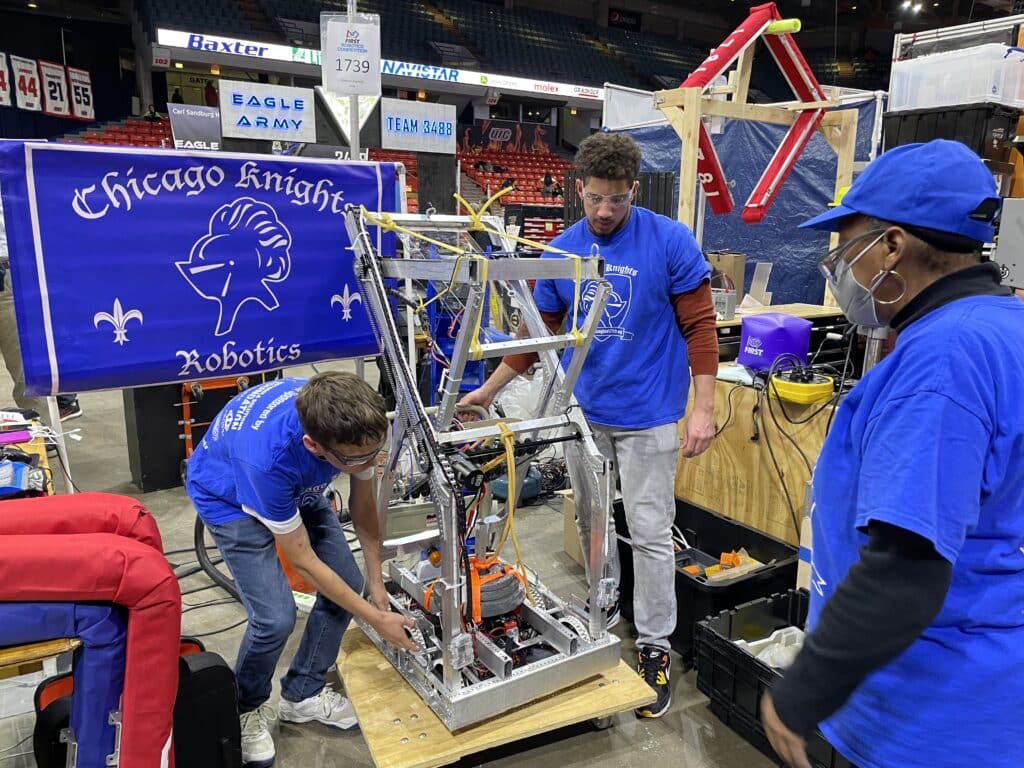
Prior to collaborating with Dieudonne, Jackie had been invited a few times to teach robotics in Uganda and South Africa. These opportunities did not meet her philosophy of teaching, which is to “not to become the expert in the room, but to work collaboratively with someone.”
Soon after Jackie and Dieudonne met, the pandemic hit and remote learning opportunities allowed for the students from South Africa to be involved in collaborative robotics programs. They collaborated remotely for an entire season of robotics competitions. Remote work did have its challenges, Jackie explains, “the way that I typically work really requires a lot of hand-on teaching.” While the virtual environment made it difficult for students to focus, especially in Port Alfred where they often faced the challenge of unstable internet connections and recurring “load shedding”, the students held on and kept coming back for robotics opportunities.
Things changed for the One Team Two Continents team when a grant from the U.S. Embassy's U.S. Mission to South Africa provided funding for students to travel between Chicago and Port Alfred. When applying for the grant, Jackie and Diedonne focused strongly on the fact that the kids from South Africa and Chicago would be working together as one team. Their project proposed to demonstrate the value of pluralism and social inclusion in a robotics environment. This allowed for the teens’ interest in robotics to be placed front and center while showing the value of pluralism and social inclusion through working together as a team.
The exchange between the students in Chicago and the students in Port Alfred went both ways, with the Chicago students having an opportunity to visit South Africa in October of 2022. Together the teammates built small robots and did exercises to develop capacity for working cohesively as a team.
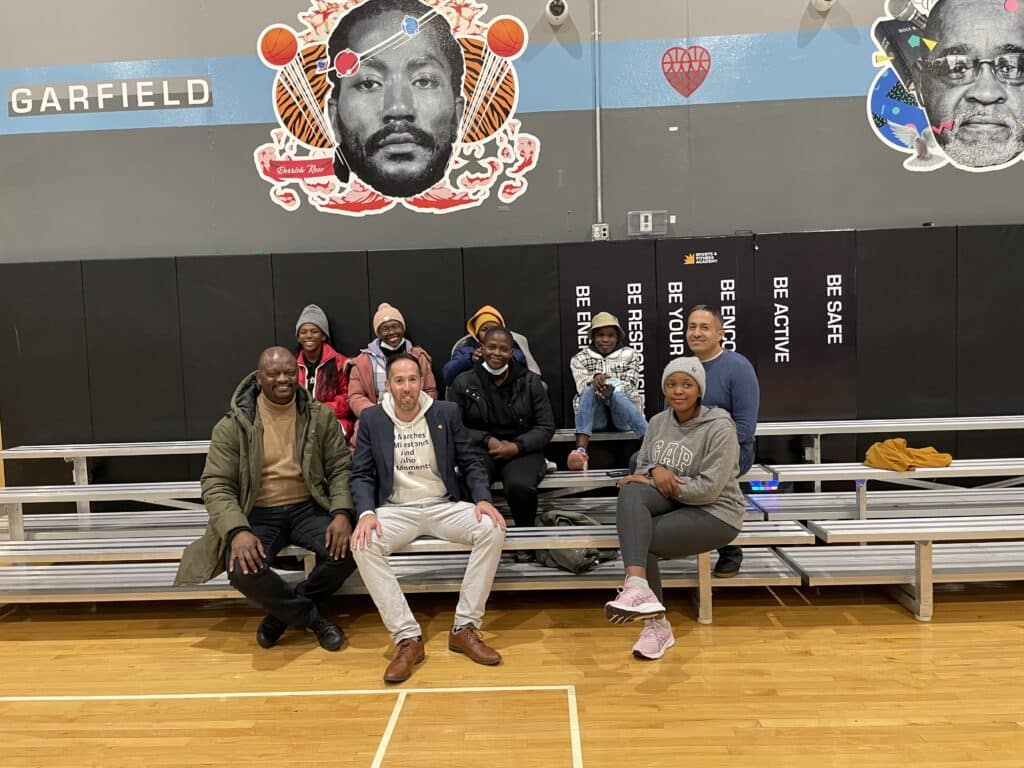
In one meaningful team building exercise, students were able to explore principles and practices of successful collaboration through a soccer game where the rules were altered to reflect the FIRST ecosystem’s values of “coopertition” and “gracious professionalism.” “Coopertition” is the practice of competing cooperatively in which a person will help their competition because the better they both are, the more they can do. In the same vein of competitive compassion,“gracious professionalism” is the idea of competing to the best of one’s ability, but to do it with grace and kindness. These two values harmonize well with Jackie and Dieudonne’s goals of pluralism and social inclusion because they encourage each member of the team to assess one another compassionately so that they can cooperate and work to each members’ strengths.
When the South African teens visited, they were taken on cultural tours of Chicago. These tours included all members of the team and many Chicago members visited places they had never visited. Students went to Little Village, Chinatown, and Robert Lindblom Math & Science Academy in West Englewood. Many of the South African students were surprised to see English as a secondary language in these neighborhoods, with the majority of signs being in Spanish in Little Village or Chinese in Chinatown. This encounter was particularly shocking to the adult South African on the trip who experienced apartheid, when assimilation to a dominant culture was expected. To see distinct Hispanic and Chinese cultural identities existing within a diverse society, and being celebrated by the community as a whole, was a new perspective and an example of the successes of cultural pluralism.
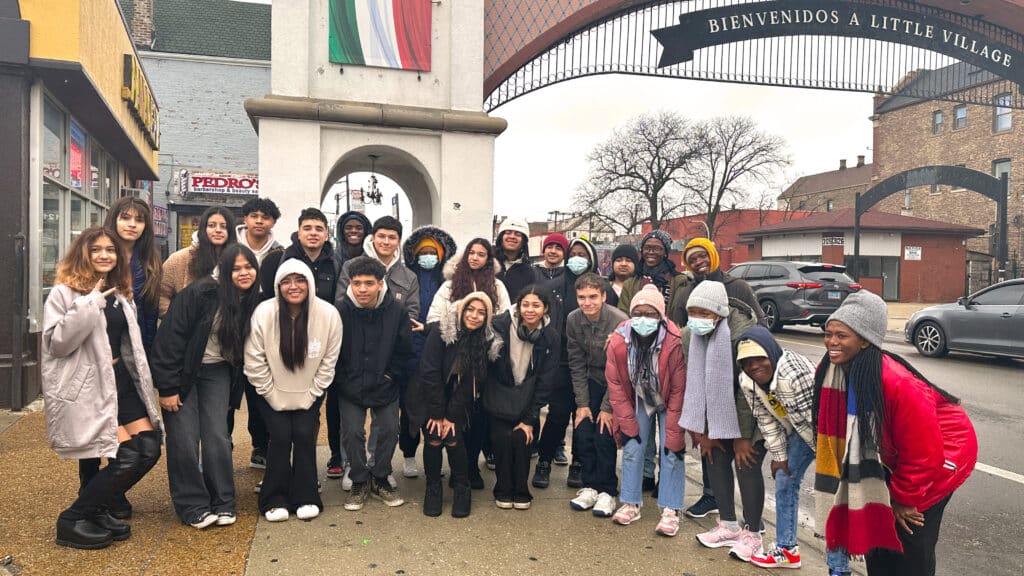
The teens who made up the Chicago Knights were incredibly dedicated to their team’s success, not only traveling internationally to learn robotics, but also sacrificing time from school and extracurriculars. The Chicago students missed Thursday and Friday for the competition, and a week of school to travel to South Africa in October. Hannah was a Chicago student who was new to the team this year. She was not able to travel to South Africa, but she worked consistently before and after the South African team arrived. For the competition, she took a break from her extracurricular activity of playing squash, missing a tournament to meet for robotics. This dedication to robotics helped the team members form close bonds and collaborate with one another and appreciate the diversity of the team.
The rules and guidelines for the FIRST Robotics competition came out in January, giving the team little time to build their robot in preparation. The 2022-2023 season of FIRST competitions was themed FIRST ENERGIZE, with activities encouraging the FIRST community to think about future energy sustainability. This challenge was inspired by the United Nations’ 7th Sustainable Development Goal, which is to ensure access to affordable, reliable, sustainable, and modern energy for all. The team built a mobile robot that was designed to play a custom game designed by FIRST. The robot uses a six-wheeled tank drive and is controlled remotely by a micro-controller called a roboRIO. It has an arm with a manipulator at the end which is composed of rollers that allow it to pick up and launch objects. The students built the entirety of the robot: interpreting drawings, measuring, cutting, drilling, and wiring electronics.
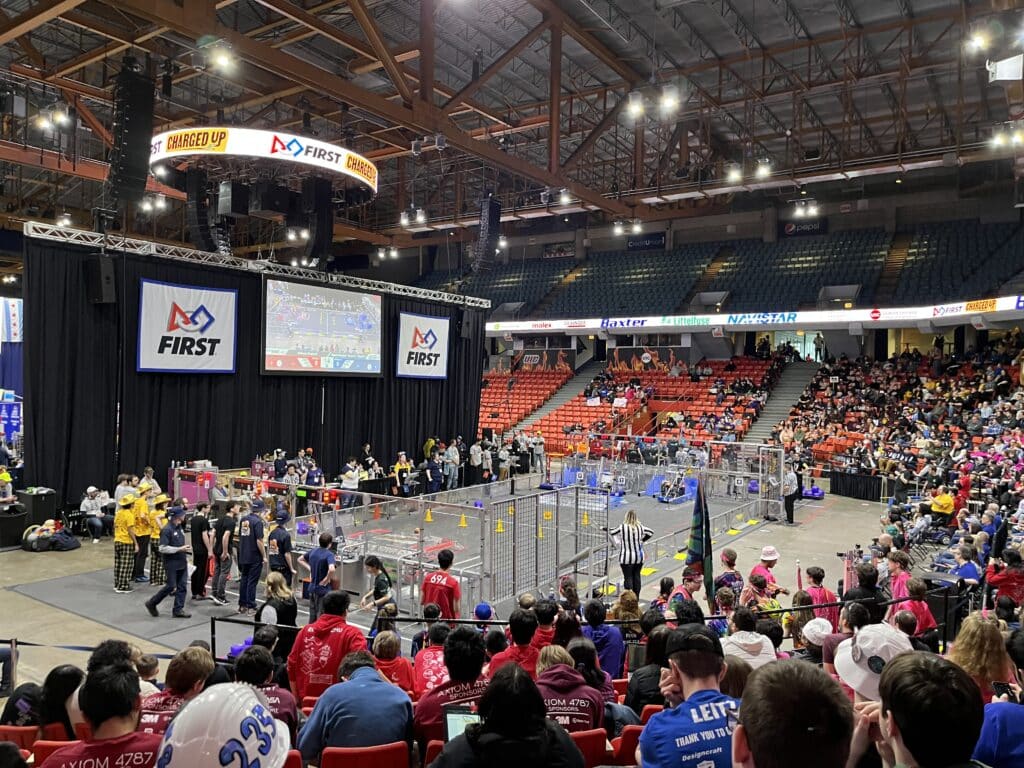
On the field were safety cones and inflatable spheres which needed to be gathered by the robots and moved to appropriate environments. Extra points could be achieved through creating links of particular objects within specific locations or by balancing the robot on an elevated platform with its teammates. Jackie and the Knights understood the game from a social perspective, referring to the manipulated objects as “cone people” and "square people” who could thrive by being placed together in diverse environments as a community which produces points as resources.
The team made an “Every-bot” design shared by the FIRST community which was designed to be accessible and constructible with basic tools. By focusing on the build, the team had a chance to get a lot of hands-on experience building by constructing the entirety of the robot in Chicago. The Chicago side of the team built an initial section of the robot, but when the South African students arrived they got to be a big part of finalizing the robot. Students learned skills and information on the sport to accomplish last-minute aspects of the build in the midst of the competition. One South African student named Litha came in without a great deal of hands-on experience but became a key member of the team working on electronics. She learned from mentors on the Knights and on other teams competing to gain the necessary skills to work on the electronics of the robot. Chicago students also stepped in to teach the South Africans what they had learned from prior builds. Reflecting on the process, Jackie noted, “I guess adversity builds strong bonds. We knew we had a deadline to meet, a very finite time to work on it, and they all worked together.”
Due to the timing of the South Africans arrivals and logistical challenges on the Chicago side, much of the building of the robot took place during the start of the competition. This came at the cost of missing the first day of competing, but provided bonding experiences and a lot of opportunities for the South African team members to gain the hand on building experience that they had been lacking. One student named Jalen, reflected on the building process: “We worked really hard. We would work from 9am-8pm because we had to build a whole robot in a week. We had to work quickly, make as few mistakes as we could, and stay focused.” Despite the rushed building process, the teens were very excited to participate in the competition and all came together to cheer when their robot made it to the competition floor.
As the teens on the Chicago Knights competed in the FIRST competition, they realized that cooperation was an essential part of the tournament. Many Chicago students went out of their way to teach South African students, who had limited experience building. For instance, Jalen was referred to as the “rivet master” for teaching the rest of the students how to use a rivet gun. Not only did teammates assist each other, but they were also helped by other teams. As the Knights crunched to build their robot, they were assisted by students from Lindblom to machine a ventilation pipe. Reflecting on her favorite memories working on the project, one student named Hannah reflected, “Cheering for our team at the competition was my favorite part. But we also got to go around and take pictures with other teams [...] I was shy to speak to other teams, but they were really nice and let me take pictures with them and their robots.” From start to finish, the FIRST competition was as much about compassion and collaboration as it was about competition, making it an excellent environment for cultural and intellectual exchange.
United by STEM: One Team, Two Continents
featuring Dieudonne Allo and Jacquelyn Moore
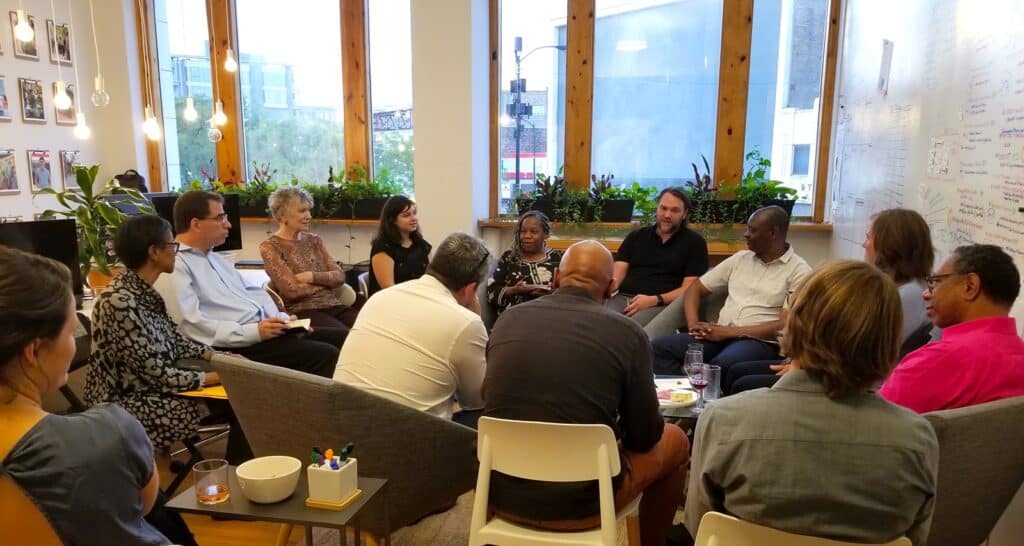
Two Goldin Fellows from South Africa and the USA (Dieudonne Allo and Jacquelyn Moore) are joining forces to convene young people with an interest in STEM and Robotics from Chicago (USA) and Port Alfred (South Africa) to collaborate as a unified team to compete in the FIRST® Innovation Challenge presented by Qualcomm.
Both seasoned professionals in teaching STEM through real world application in their respective countries, Dieudonne and Jacquelyn share a commitment to teaching robotics related skills to illustrate the value of engaging in a cross-continental collaboration with youth ages 13-19. For Inspiration and Recognition of Science and Technology (FIRST®) is a global community which seeks to empower and equip young people to become innovators in STEM, and foster life-long skills through inclusive team-based initiatives.
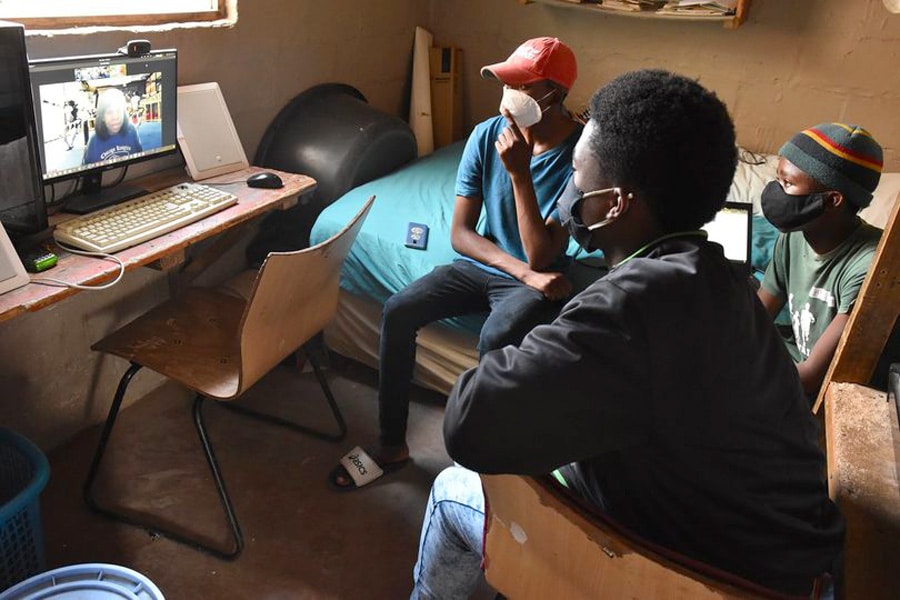
Allo is the CEO of the Global Leading Light Initiative, a non-profit in South Africa which supports young people in historically disadvantaged communities to acquire future proof skills, with the aim of reducing poverty and inequalities. Moore is the founder and Executive Director of Agape Werks, Inc, a community based non-profit in Chicago with a mission to promote in young people an appreciation of math, science, technology, and engineering as strategic tools for success regardless of life circumstances. In Agape Werks’ offerings, all skills will be learned and applied in an inclusive and collaborative environment that partners teens of various skill levels, interests, and heritage with caring and professional adults, all focused on the same goal.
Allo and Moore developed the “One Team Two Continents” concept in 2019 when they began exploring cross-continental collaboration opportunities after meeting through the Goldin Global Fellows program. This initiative envisions a youth-led, distributed team working together by using robotics related skills to meaningfully address common issues that impact their geographically dispersed communities.
The global pandemic led to FIRST® making their programs virtual, removing the need for participants to travel. One of these remote programs offered by FIRST® was the Global Innovation Challenge, a competition for teams to design a solution under the theme of ‘active play and movement’, for which youth from South Africa formally joined the Chicago Knights to compete in the 2020-21 FIRST® GAME CHANGERS℠ powered by Star Wars: Force for Change. In February of 2021, the youth began working together to submit a solution to the challenge:
“Identify a problem or opportunity to help people (or a community of people) keep, regain, or achieve optimum physical and/or mental health and fitness through active play or movement”.
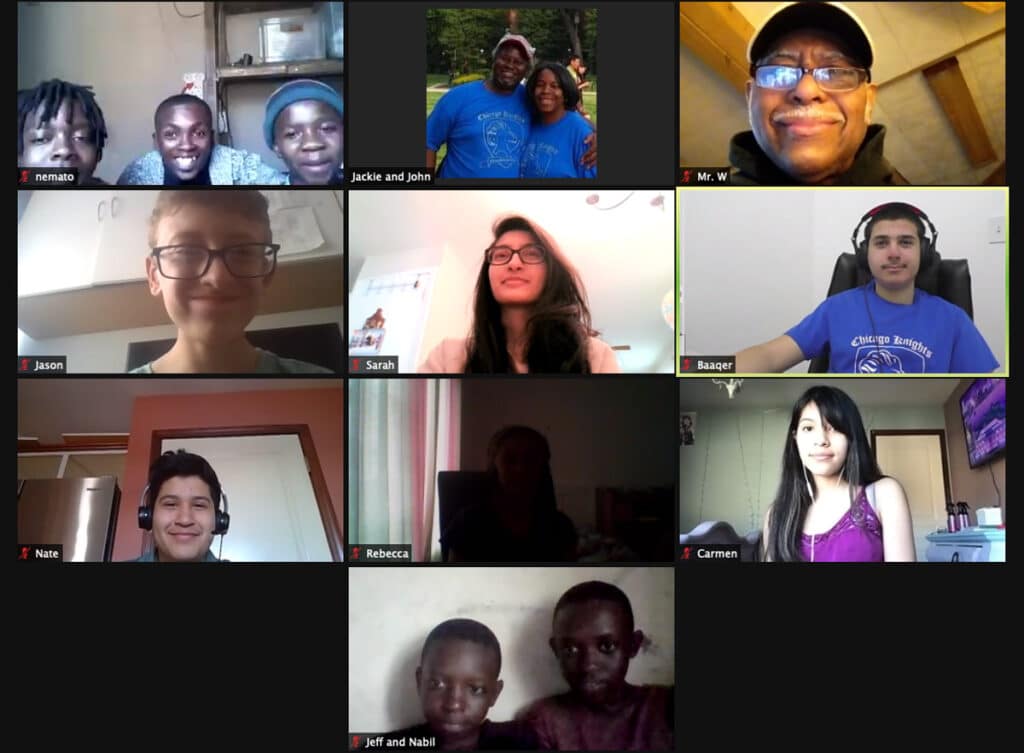
The team represents 2 continents, 3 countries, 8 unique primary languages, plus 5 unique languages team members are learning.
Each member has committed to meeting three days a week for at least 10 weeks, to learn from each other and to foster cross-cultural collaboration and sharing. Bringing together their combined knowledge, passions, insights, and interests, they have developed a solution based on cutting edge technology and empathy for their users. They are now focused on finalizing their business presentation and pitch. The team (the International Chicago Knights) will be pitching their solution to a panel of judges on April 3, 2021 and will share it with you here, soon after.
When asked why they joined the team, the youth responses ranged from “my mom wanted me to join, but now I really enjoy learning programming” (Rebecca, South Africa) to “I am interested in learning about and designing a robot” (Anathi, South Africa). Almost all of them are excited about learning to use the Python programming language. Team member Baaqer (USA) adds: “passion to discover new technologies and solve challenging problems in the purpose of helping people gives me the everyday encouragement to stay effectively committed to the challenge.”
Moore has led the mentoring and learning process during the 5 different sessions each week, with a diverse group of mentors and subject matter experts working with her. This includes team alumni, retired engineers, medical professionals, and business partners. Programming mentor, Sarah (graduate student, USA) volunteers because her “desire for constant learning is a significant motivation to be involved in this challenge. I want to learn, help, and work with others to solve problems!” The team members are learning a variety of business, technical, and interpersonal skills, and how to apply these skills to group problem solving. More importantly, the teens are learning new ways of communicating and gaining a deep understanding of creating universally accessible products.
“This extraordinary learning experience is not only imparting STEM-related skills, but it is also changing teens’ perceptions of themselves, others and life. At GLLI, one of the main challenges we have faced in our work with young people is their limited beliefs about themselves and others. ‘One Team Two continents’ is going beyond teaching them robotics and design skills to tackle this challenge in a significant way. The co-creation and excitement which I observe during sessions constantly raise the question, “How can we help more underserved teens to access this program?” —Goldin Global Fellow, Dieudonne Allo, South Africa.
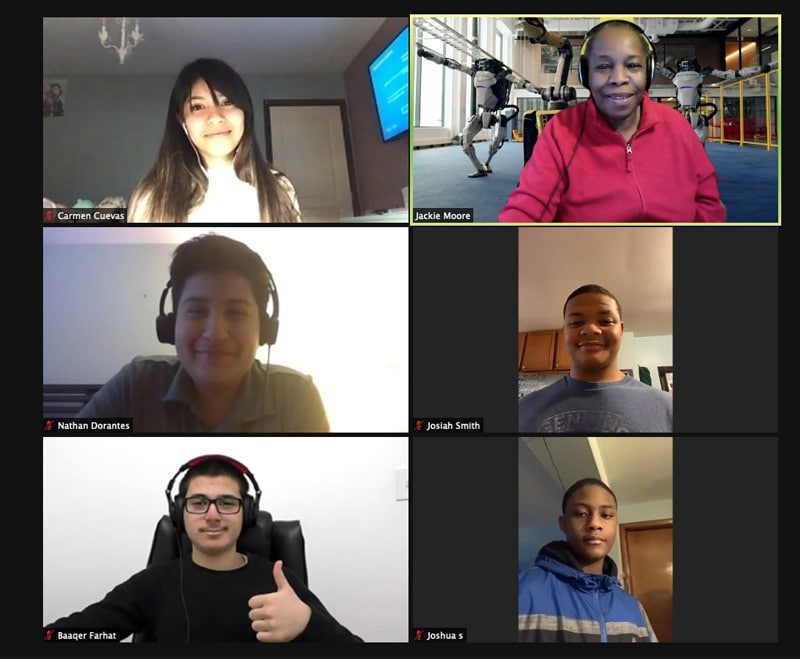
“This particular initiative is a concrete example of what we want to accomplish as partners. It’s an opportunity to test and prove that it can work. We are not chasing the trophy in this competition; we are chasing the goals, but if we get the trophy that’s icing on the cake.” — Chicago Peace Fellow, Jacquelyn Moore, USA.
To ensure the success of this initiative, the One Team Two Continents team needs your support.
Their process requires resources which most youth cannot afford and cannot access. The One Team Two Continents initiative would appreciate any help to obtain the following items. To make a contribution please visit the team’s PayPal page.
To support remote learning:
- Mobile hotspots (or home internet access)
- Internet capable computing devices (at least a smart phone or tablet)
- Webcams
- Microphones
- Headphones
Additionally, to support learning specific skills:
- Windows 10 computers with at least 8G RAM (for robotics specific software, also supports remote learning)
- three button USB mice (for 3D modeling and design)
- Electronics Project Kits
- Educational robot kits
To support bringing the product to market, cash, or in-kind donations of:
- Raw materials for fabrication (polycarbonate, acrylic, 3D filament)
- Graphics Artist (marketing purposes)
- Specific electronic components (sensors, micro controller, etc)
To Support travel when it is permissible, cash donations help pay for:
- Passport and Visa fees for students
- Travel Costs (local and abroad)
- Housing for students and mentors/chaperons
- Cultural experiences (local and abroad)
